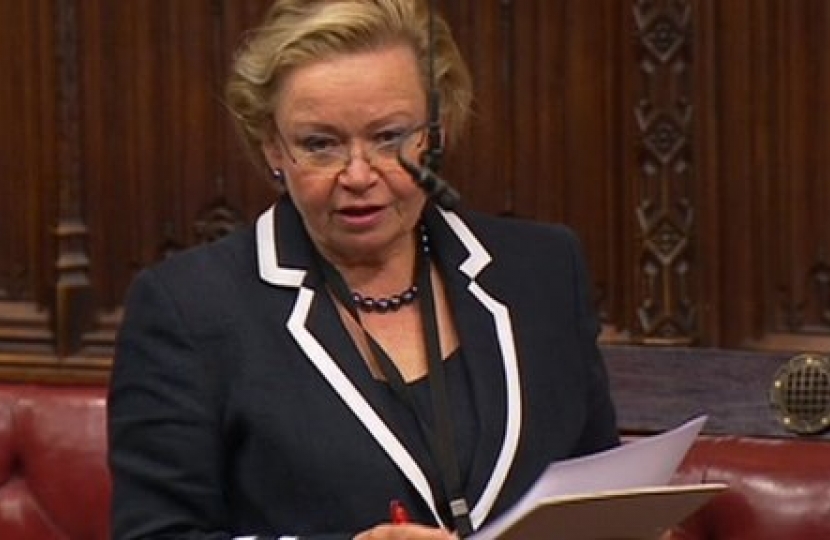
At the start of the 2nd Reading of the Marriage (same sex couples) Bill in the House of Lords, the first speaker was Conservative peer, Baroness Noakes who questioned why anyone would want to deny marriage to a loving couple. Her full speech can be read here:
3.08 pm
Baroness Noakes: My Lords, it is a privilege to start our second day of debate on this important Bill. Yesterday our debate was a wonderful demonstration of this House’s ability to tackle difficult issues with restraint and respect, and I hope that we may continue in that vein today.
There are three main reasons why I support the Bill. First, I support it because I am a firm believer in marriage. Enduring relationships between couples, based on love, respect and responsibility, are good for the people involved and, in turn, strong relationships are good for society. Couples who want to share their lives together do not have to get married, and the Bill will not change that, but many value the sustainability and stability that marriage offers. I believe that marriage is a great environment in which to raise children but, for all kinds of reasons, marriage today is not defined by children or even by the possibility of procreation. Marriage is a much bigger concept than that.
Being gay or lesbian is not a lifestyle choice but an essential fact about a small but significant minority. It is as natural for them to seek lifetime relationships with a person of the same sex as it is for most of us to share our lives with an opposite sex partner. As a happily married woman, I will gladly extend marriage to committed couples who happen to be of the same sex. I genuinely find it difficult to work out why other happily married people want to deny them the privilege of marriage, and I certainly reject the suggestion made yesterday that same sex couples should invent their own name in place of marriage.
My second reason is that same sex marriage has popular support. The House of Commons Library note on the Bill makes it clear that polls can be skewed by the questions asked, but the clear evidence from the various polls that have asked straightforward questions about same sex marriage is that there is a majority,
and an increasing one, in favour. The most important feature is that support is huge in the younger age groups, and only those over 65 show net opposition. I hope that noble Lords will reflect today that same sex marriage will have its greatest impact on age groups that are barely represented in your Lordships’ House.
Freedom is my third reason for supporting this Bill. We have to ask very serious questions about why the law should deny people the freedom to do things that they want to do. Of course, there are strong public policy grounds for stopping people from doing all sorts of things, but I struggle to see what public policy grounds should prevent same sex couples from being married. If we embrace the freedom to marry in the Bill, it will surely bring happiness to a minority. I have heard nothing in the debate thus far that points to clear and specific harm to other groups in society.
I could have seen a public policy reason for objecting to the Bill if it rode roughshod over the ability of the established religions to maintain their own concepts of marriage, but the quadruple lock arrangements in the Bill seem to me—and to the Church of England, if I read its announcement last month correctly—to provide robust protections for religious freedoms.
Marriage is a great institution that belongs to society as a whole, not to particular groups. Parliament is the right place to guard access to marriage. We have the privilege of a free vote and we must use it with wisdom, for the benefit of society, regardless of our personal preferences. If the noble Lord, Lord Dear, decides to divide the House, I hope that we will respect the clear decision of the other place on a free vote. We can then move on to the job that we are good at, as a revising Chamber, testing all the detailed concerns that have rightly been raised by noble Lords in this debate.
